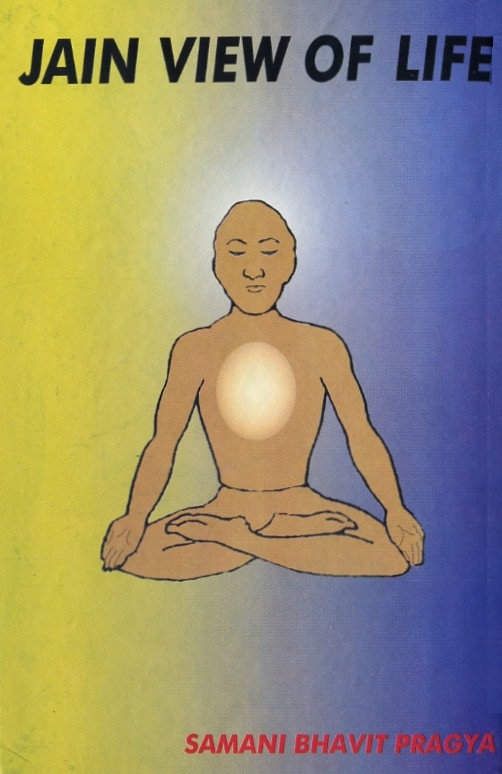Renunciation
India is a land of saints and seers. There have been saints and seers for ages in the past and in the present too. All great souls devote their time and attention to the development of the soul. Renunciation is the basis of higher spiritual life. The concept of renunciation in Jainism is very different from other traditions. Renunciation means abandonment or the act of giving up sinful activity partly or wholly. An ascetic abandons home, family possessions and leads a life of spiritualism. He lives his life with very limited means and devotes himself for spiritual pursuits as well as welfare of the mankind, whereas a householder leading a worldly life tries to abandon attachment partly dedicating his soul for spiritual purpose like a lotus leaf by water. As we know, the life growth and sustenance of the lotus are all dependent on water. It dries away when severes from it. Man is born with karma and sustains by it while fully performing household activities. In such a situation, he tries to lead the life of renouncement, abandoning attachment. He performs work with body, the mind, the intellect and the senses only for duty. Through renunciation, he tries to dissociate karma from soul.
Renunciation is religion. In Mahavira's language the real renounce is he who refrains from desirable objects like clothes, smell, ornaments, women, bed even in their availability and gives up all desirable and pleasing objects deliberately. If one who abstains from clothes, smell, ornaments, women, bed in their non-availability is not renouncer.
Dasharnabhadra was the ruler of Dasharnapur. He came to pay homage (Obeisance) to Lord Mahavira feeling very proud of his wealth. To kill ego of Dasharnabhadra, Indra also came to obeisance to Lord with great wealth and prosperity. Seeing his wealth and prosperity, Dasharnabhadra felt ashamed, his pride declined. He relinquished all glory and splendour and became an ascetic. Indra bowed down before his renunciation. A renouncer is the supreme King. He sacrifices material pleasures, wealth and prosperity. Renunciation is possible only when desire is withdrawn from external object and turned inwards. Sacrifices make a person detached. Kabir said, "Chaha gai cinta miti manuva beparvaha jisko kachhu na chahiye so sahanka shaha," which means a person who is free from desires, becomes completely free from anxiety. He has nothing*to worry and needs nothing, he is really the king of kings.
Now a days the interest in renunciation is declining and disappearing among the people. Today man is engaged in earning more and more money. The result of accumulation is dissatisfaction and tensions. The reason for tension and dissatisfaction is that the desires are increasing. A growing desire is capable of raising their hoods even while man is at the point of death. It is in and through indulgence that desires thrives. Firstly, desire fosters in the mind, expresses itself in the physique by directing the senses covetously on their objects. Cravings and aversion are products of desires and they defile true nature of soul. These defilements are expressed in the form of anger, ego, deception and covetousness. All these passions drag soul downward. In addition to these, there are semi-defilement known as "Nokashayas" like joy, affection, disaffection, fear, gloom, disgust, three types of sexual impulses. All these kashayas (passions) indulge soul in destructive force.
Desire grown to the stature of greed is a destructive force. Non-renouncer among them who comes under its sway holds it as a helpful friend. Whenever a set back and humiliation ensure from it, the destructive force of desire is momentarily detested as a treacherous factor in the make-up of man. But this feeling vanishes as quickly as it dawns. But the unwary ignorant chooses to ally with it always.
Desire clings more tenaciously to the subtle than to the gross. Initially attachment to the body easily shifts and causes the attachment of the senses. From the senses it shifts to the mind. From the mind it rises to the intellect. Attachment to all of these categories leads to bondage and brings untold misery to the embodied souls. When desires are controlled by practice of renunciation. The mind of man moves to self-bliss, infinitude becomes patent. A monk who has quelled the impulses, desires. The bliss of self becomes tangible to him. Because of complete detachment from mundane, the detached souls engage themselves in the welfare of self and mankind.
Renouncer dissociates karma from soul, the momentum of the old karma wanes away. The path of renunciation lacks desires, wishes and accumulation of wealth. It frees ones external and internal possession. Renunciation is the basis of spiritualism. It is required to make effort and preserve tradition of renunciation. India is fortunate country where there are monks and nuns who follow five great vows like non-violence, truth, non-stealing, celibacy and non-possession and carry on spiritual practices. It is sure and certain that those people who follow the path of renunciation they remain free from tensions, worries and dissatisfaction that are the illness of this age.
Plain living and high thinking is the motto of Jain householders. They should cultivate the spirit of renunciation. Renunciation desists from all evil deeds which may lead to his spiritual or moral degradation. It is a constructive force, a positive and informative step for spiritual upliftment. It directs the flow of energies in to specific channels and produces thoroughness. It leads soul to the path of liberation, purifies one's existence and elevates one to spiritual planes. Renunciation is highest criterion of religion.
 Samani Bhavit Pragya
Samani Bhavit Pragya
